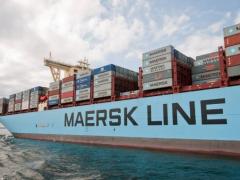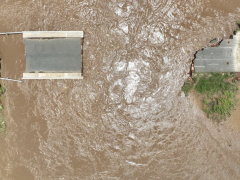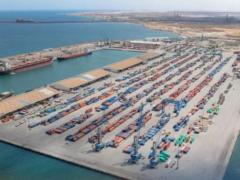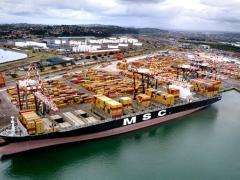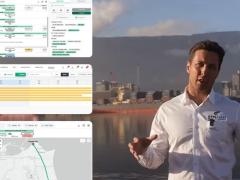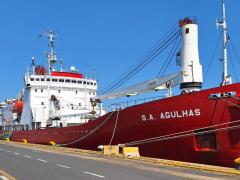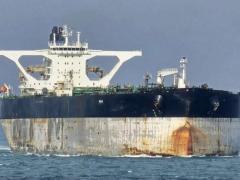Private-sector interest in South Africa’s third-party rail-slot allocation process serves as confirmation of the rail-freight turnaround strategies deployed by Department of Transport (DoT) minister, Barbara Creecy, logistics executive Dr Juanita Maree has said.
Tied into week-on-week waterside throughput improvements at the country’s ports, it adds to a growing narrative that services at the country’s once-ailing state-owned entity (SOE) for logistics, Transnet, may finally have turned a corner.
But Maree, who heads up the South African Association of Freight Forwarders, said we must proceed with caution and clarity of purpose, not forgetting what we’re recovering from.
In a question-and-answer session with Freight News, she said the country’s freight rail and ports network had come a long way in a short space of time.
“We all know state capture happened, and we did not invest in our ports. Now, with our ports improving and the rail-slot process under way, there’s a real opportunity to see significant, overall improvement under Minister Creecy.”
She said interest in the rail-slot privatisation process had been clear from the time the DoT first requested information, eliciting 162 responses.
Q: Was this overall?
A: No, just on the NatCor Line (the National Corridor line linking the Port of Durban with Gauteng) about 52 companies responded.
Q: Ultimately the whole process was whittled down to 24 applicants and 11 confirmations, including the likes of Grindrod, Menar mining company and Mediterranean Shipping Company. So where to from here?
A: We’re clearly moving in the right direction, but we must be cautious. It’s going to take time. Wholesale change at the SOE isn’t going to happen overnight but at least now the door is open. It’s important that private-sector interests in the freight industry support Transnet and the DoT in this process.
Q: Considering how challenging it is to drive private participation in the public-controlled freight sector, how secure do you think the PPP progress is?
A: We shouldn’t get ahead of ourselves. It’s important to remember that Minister Creecy has said that the infrastructure will always remain in the government, and that’s where it should be. But when you talk about independent technical assessments of lines like the NatCor line, the coal line to the Port of Richards Bay and the Sishen to Saldanha ore line, that’s when the role of private-sector involvement becomes clear. This is especially relevant for the NatCor Line where we ran 100 trains up and down before State Capture. Now we’re running 10 to 15 trains, so you can see the huge opportunity if the slots are made available and the infrastructure improved and kept at an optimum performance. Not only will you then be able to run more trains on the line, but you can match the design capacity of the line with demonstrated capability.
Q: Do you see under-performance eventually becoming a thing of the past?
A: I do, but once again, it will take involvement across the board to get SA Inc working. Experts from the freight industry must be proactive when there are bottlenecks, aiding the government in sorting bottlenecks out. In this sense it’s encouraging to see that the DoT, World Bank and Development Bank of SA are involved in funding a PSP Unit (private-sector participation). That’s going to be very important as we proceed. The PSP Unit will act as transaction advisers and enable the correct implementation of processes and procedures. We want to do this right from the start, so it’s important to have the best available minds at our disposal.
- This is the first part of a two-part interview.



